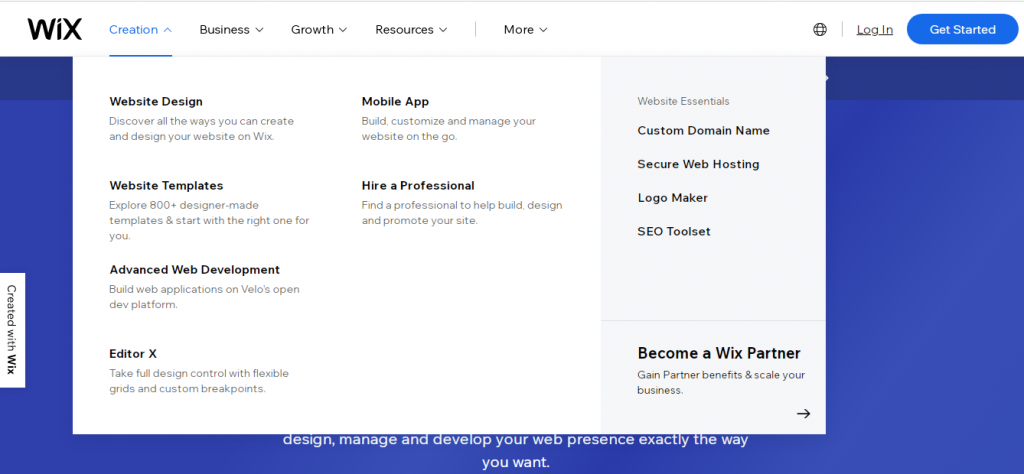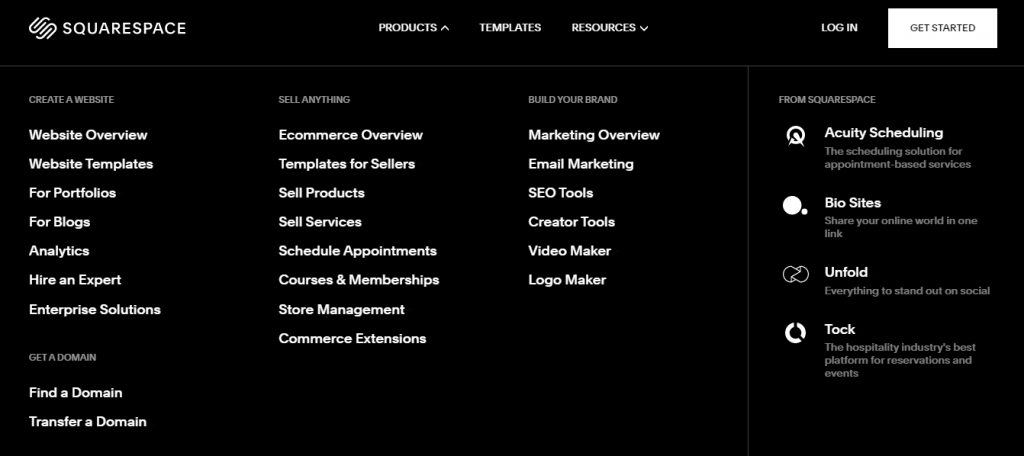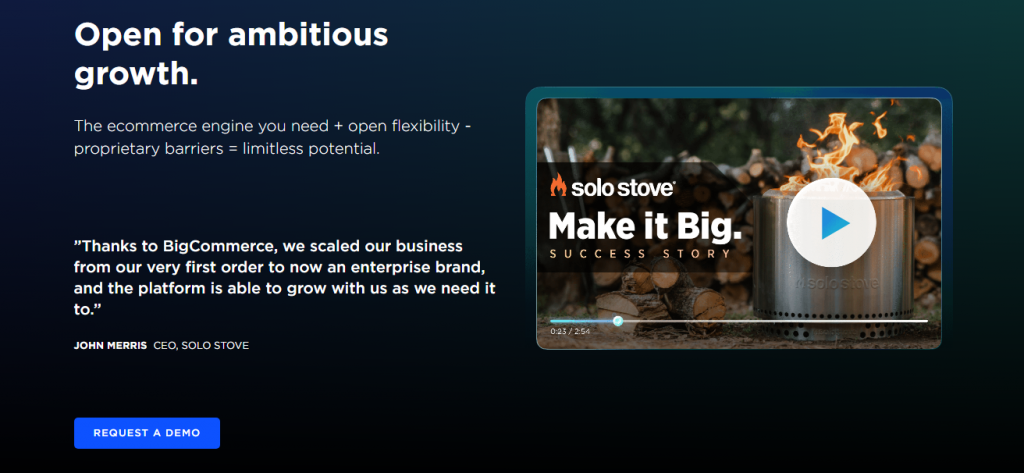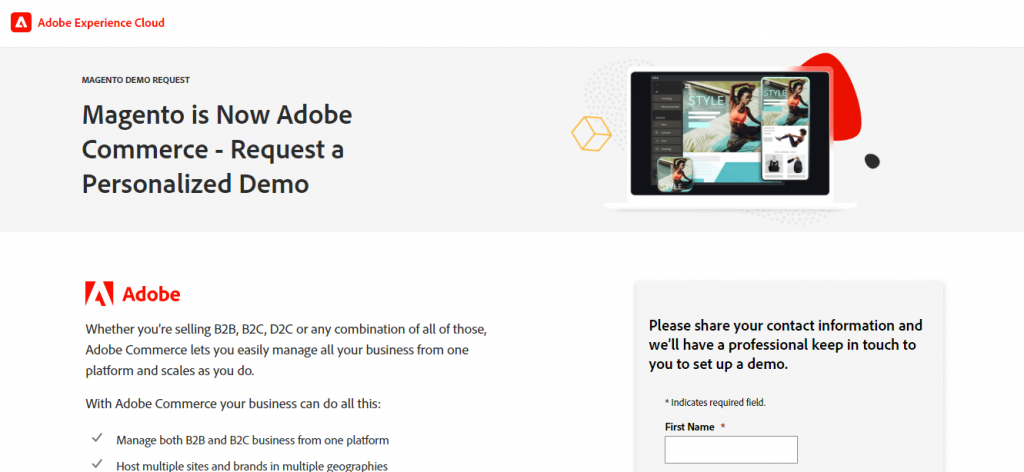Website builder: the most advanced & customizable platforms
Selecting a website builder is very important. Everything that follows, including design, usability, customer experience, support, addition, and more, will be impacted by this choice. Your first concern should be the goals you have for it. Some systems are better for e-commerce, while others are better for security. Each of the aforementioned website builders has particular advantages and disadvantages. The objective is to choose a platform that will not only meet your needs right now but also grow your business.
In one of our previous articles, we discussed website builders that are quick and simple for beginners. Let's list them once again:
- Strikingly
- Constant Contact
- Site123
- Duda
- Jimdo
- GoDaddy
Advanced, extremely configurable website builders
Next, let's examine advanced, extremely configurable website builders.
Wix

For good reason, Wix consistently ranks among the best website builders for small businesses. Wix draws website administrators from a wide range of industries and business models thanks to its inexpensive costs and simple website builder. Although building a website using it takes longer than with the other website builders we've highlighted, you can truly go into the nitty-gritty of web design to make a completely original and one-of-a-kind website the way you want.
Squarespace

Wix's competitor Squarespace also targets this market for flexible customization choices with an intuitive editor. However, there is a subtle but noticeable difference between the two: Wix's editor is more user-friendly than Squarespace's, but Wix's design is somewhat more polished for a better visual experience. This places Squarespace slightly to the right on the convenience and customization spectrum.
WordPress

While WordPress remained the top website builder for a long time in the early 2010s, that changed with the advent of more user-friendly editors like Wix and Squarespace. However, with several distinctive features and a ton of customization choices, it is still relevant and competitive thanks to its nearly limitless plugin library and superb blogging friendliness.
Ecommerce-specific website builders
In addition to normal website builders, there are e-commerce website builders. You must consider additional features like transaction costs and the maximum number of product pages you can host while trading online. These three website builders are focused on eCommerce, which is what you need if you want to create an online store.
Shopify

With Shopify, building an eCommerce website is quick and simple once you've chosen a theme. Design and customization work is minimal. Shopify has all the tools a shop needs, such as upsell and promotion opportunities, but its design options are limited. Shopify is designed for people who want to concentrate more on their businesses than website development. The layouts are adequate, but Shopify is not the right choice if you want a website that stands out.
Weebly

Weebly is more advanced than BigCommerce and Shopify. Although it is not designed exclusively for e-commerce, it is a great platform for it. Weebly has more design options than the average free website builder, but not so many that it becomes overwhelming.
BigCommerce

Among eCommerce website builders, BigCommerce, a powerhouse, offers more capabilities and design possibilities but also costs more and takes more time to use. Startups and new stores will pay for options they don't need and can't use because BigCommerce is meant for large retailers. But it offers everything a store could want.
Magento

For more than a decade, Magento has served as the foundation for creating e-commerce websites, first owned by eBay and now by Adobe. Expect to have development and backend knowledge because it's very much an "under the hood" platform, or you can pick up those skills along the way. The cost of this unprecedented level of personalization, however, is thousands of 3P extensions and all the necessary e-commerce options.
There are two versions of Magento: a comprehensive free Magento Open Source edition and a comprehensive paid Magento Commerce edition. In the event that you do not have the time to learn how to utilize the free edition, the latter has additional marketing and design tools as well as a WYSIWYG editor. The cost of Magento Commerce starts at a few thousand dollars per month, but it also provides customer and cloud support (for the free version, you must rely on the assistance of the community).
Square Online Store

Square began as a point-of-sale system for making offline purchases. Today, it has evolved into a full-featured website builder for e-commerce, especially for small businesses. While this is a benefit for those who don't want to bother with technical issues, it really limits what can be done by an experienced developer. Unlike BigCommerce and Magento, Square prefers to keep things simple by taking care of behind-the-scenes areas like SSL certificates, hosting, and SEO.
Although the "free" version is technically free (you still have to pay a commission of 2.9% or 30 cents per transaction), the pricing is affordable. But it's still less expensive than the majority of alternative website builders. Among the extra features offered in the subscription editions are custom domains, site-based customer reviews, and abandoned cart emails.
Currently, you may put together an information site, a store, a landing page, or any other type of site using a number of services and CMS systems. The decision should be taken in light of the project's aims and objectives.
If you still require assistance with your decision, post a task on Insolvo and request advice from one of our experts.
Headings: Programming & Web




